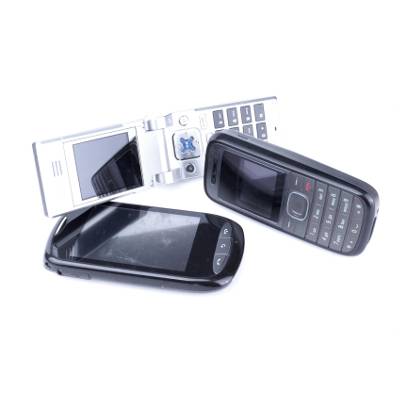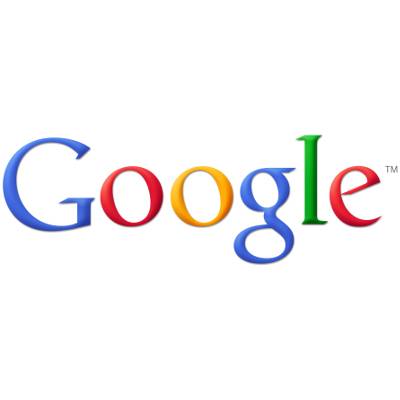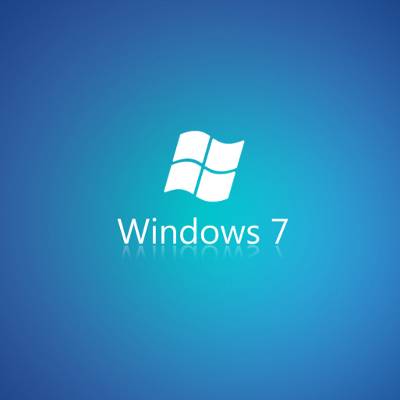Macro Systems Blog
 Don't trust Google and Yahoo just yet - they might be fake! On July 10th, 2014, Microsoft issued a warning concerning the nature of identical SSL certificates and domains of some popular sites that might allow malicious copycat sites to emerge. As of now, the cause is unknown, but we know that this could be dangerous if you're not prepared to deal with it.
Don't trust Google and Yahoo just yet - they might be fake! On July 10th, 2014, Microsoft issued a warning concerning the nature of identical SSL certificates and domains of some popular sites that might allow malicious copycat sites to emerge. As of now, the cause is unknown, but we know that this could be dangerous if you're not prepared to deal with it.
 3D Printing is something that has been talked about for years, but has finally become a reality. No longer do we have to deal with flat, lifeless images printed out of ink-wasting printers and machines - but, do we know what kind of impact this new innovation will have on several industries around the world?
3D Printing is something that has been talked about for years, but has finally become a reality. No longer do we have to deal with flat, lifeless images printed out of ink-wasting printers and machines - but, do we know what kind of impact this new innovation will have on several industries around the world?
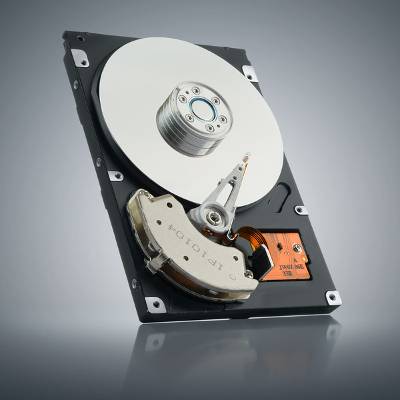 You've heard about how bad a computer crash can be. You may have even experienced a crash yourself, but are you familiar with the technical reason behind a crash? A crash happens when the tiny pieces of a hard disk drive stop working by crashing into each other at very high speeds. When this happens, the data on your computer is lost.
You've heard about how bad a computer crash can be. You may have even experienced a crash yourself, but are you familiar with the technical reason behind a crash? A crash happens when the tiny pieces of a hard disk drive stop working by crashing into each other at very high speeds. When this happens, the data on your computer is lost.
 Every business operates on a budget and every employee has a responsibility to make sure that their actions keep their company within said budget. Budgets don't like surprises, and employees don't like a busted budget being traced back to them. This reality can make things messy and expensive when it comes to doing IT the break-fix way.
Every business operates on a budget and every employee has a responsibility to make sure that their actions keep their company within said budget. Budgets don't like surprises, and employees don't like a busted budget being traced back to them. This reality can make things messy and expensive when it comes to doing IT the break-fix way.
 "Free WiFi Zone." You see the sign advertised in the window of a new coffee shop. You've got a lot of work to do and you want a change of scenery, so you pack up your laptop and pay them a visit. The coffee is great, but the WiFi service is lousy. In fact, the spotty WiFi service is so poor that you get frustrated and leave, vowing to never shop there again.
"Free WiFi Zone." You see the sign advertised in the window of a new coffee shop. You've got a lot of work to do and you want a change of scenery, so you pack up your laptop and pay them a visit. The coffee is great, but the WiFi service is lousy. In fact, the spotty WiFi service is so poor that you get frustrated and leave, vowing to never shop there again.
 We talk a lot about viruses or holes in supposedly sound security structures, but today it seems as if that's all there is to talk about. It's all about the latest vulnerability, or a hacking attack that left millions of people with compromised passwords. People always concentrate on the negative aspects of things without looking at the positives.
We talk a lot about viruses or holes in supposedly sound security structures, but today it seems as if that's all there is to talk about. It's all about the latest vulnerability, or a hacking attack that left millions of people with compromised passwords. People always concentrate on the negative aspects of things without looking at the positives.
 More studies are proving that multitasking is terrible for productivity. This is due to the fact that the brain just isn't capable of doing two things at once, or at least very well. Instead, behavioral scientist are saying that focusing on a single task is the key to productivity. Here are three tips to help you focus at work!
More studies are proving that multitasking is terrible for productivity. This is due to the fact that the brain just isn't capable of doing two things at once, or at least very well. Instead, behavioral scientist are saying that focusing on a single task is the key to productivity. Here are three tips to help you focus at work!
 When your business is in need of IT assistance, you want to make sure that you are getting the best of the best. However, the best course of action isn't to just look at someone's qualifications. You also want to look at their personality and other characteristics which can tell you a lot about who you are hiring.
When your business is in need of IT assistance, you want to make sure that you are getting the best of the best. However, the best course of action isn't to just look at someone's qualifications. You also want to look at their personality and other characteristics which can tell you a lot about who you are hiring.
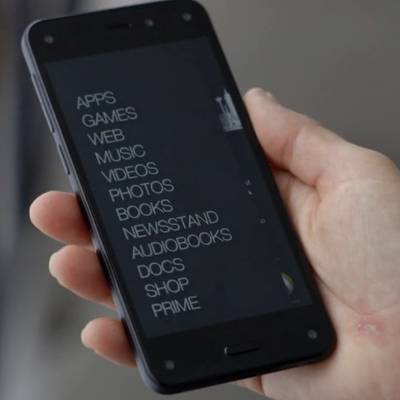 Mobile computing is literally everywhere; and, yes, that's the point of the technology. The mobile computing boom has presented major retailers with the opportunity to begin offering smartphones and tablets. The world's largest online retailer, Amazon, is the next company to launch a mobile device platform, by offering their new "Fire" smartphone, CEO Jeff Bezos announced on June 18th.
Mobile computing is literally everywhere; and, yes, that's the point of the technology. The mobile computing boom has presented major retailers with the opportunity to begin offering smartphones and tablets. The world's largest online retailer, Amazon, is the next company to launch a mobile device platform, by offering their new "Fire" smartphone, CEO Jeff Bezos announced on June 18th.
 Everything seems to be going your way for once. The office is really coming together to make that big business deal you've been trying so hard to get for months. You shake the CEO's hand and seal the deal. You stroll out of the office with a spring in your step and get in the taxi to head home for the night. But the cab driver is playing loud music - so loud that it just sounds like screeching in your ear. And then you wake up, your alarm clock ringing at max volume. It's 7:00am, and it's time to go back to the office that feels like a prison, and your employees the inmates.
Everything seems to be going your way for once. The office is really coming together to make that big business deal you've been trying so hard to get for months. You shake the CEO's hand and seal the deal. You stroll out of the office with a spring in your step and get in the taxi to head home for the night. But the cab driver is playing loud music - so loud that it just sounds like screeching in your ear. And then you wake up, your alarm clock ringing at max volume. It's 7:00am, and it's time to go back to the office that feels like a prison, and your employees the inmates.
 Everybody knows operating a computer under cooler temperatures increases its performance. This is why some server closets feel like a walk-in refrigerator. One thing about computers that you may not have known is whether or not running a PC at cooler temperatures extends its life. Logically, one would assume yes, however, the research says otherwise.
Everybody knows operating a computer under cooler temperatures increases its performance. This is why some server closets feel like a walk-in refrigerator. One thing about computers that you may not have known is whether or not running a PC at cooler temperatures extends its life. Logically, one would assume yes, however, the research says otherwise.
 Wearable technology is still relatively new. While technologies like Google Glass have found enthusiastic users, in the eyes of the general public, the verdict is still out. The best thing a Google Glass user can do with their favorite new tech is to use it responsibly. Here's some tips on how to be a good AmGlassador!
Wearable technology is still relatively new. While technologies like Google Glass have found enthusiastic users, in the eyes of the general public, the verdict is still out. The best thing a Google Glass user can do with their favorite new tech is to use it responsibly. Here's some tips on how to be a good AmGlassador!
 We're seeing a lot of buzz about a controversial issue known as "net neutrality." It's primarily being discussed in the realms of American politics, but its ramifications affect every user of the Internet from around the world! We believe that what's happening to net neutrality is important, and that everyone should be informed about it.
We're seeing a lot of buzz about a controversial issue known as "net neutrality." It's primarily being discussed in the realms of American politics, but its ramifications affect every user of the Internet from around the world! We believe that what's happening to net neutrality is important, and that everyone should be informed about it.
 Whether you're watching the World Cup or going on a business trip overseas, you will experience foreign cultures and run into what's known as "the language barrier." Thanks to technology, you can quickly and easily make sense of World Cup statistics, or make your way around a city where English isn't the norm.
Whether you're watching the World Cup or going on a business trip overseas, you will experience foreign cultures and run into what's known as "the language barrier." Thanks to technology, you can quickly and easily make sense of World Cup statistics, or make your way around a city where English isn't the norm.
 Whether you're on the move or at the workplace, your WiFi connection isn't the most secure method of browsing the Internet. Hacking techniques are growing more sophisticated, and you never know who could be observing your connection and Internet activity. Thankfully, there are ways to remediate this issue, like using a Virtual Private Network (VPN).
Whether you're on the move or at the workplace, your WiFi connection isn't the most secure method of browsing the Internet. Hacking techniques are growing more sophisticated, and you never know who could be observing your connection and Internet activity. Thankfully, there are ways to remediate this issue, like using a Virtual Private Network (VPN).

